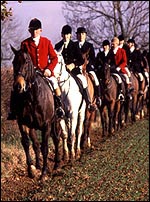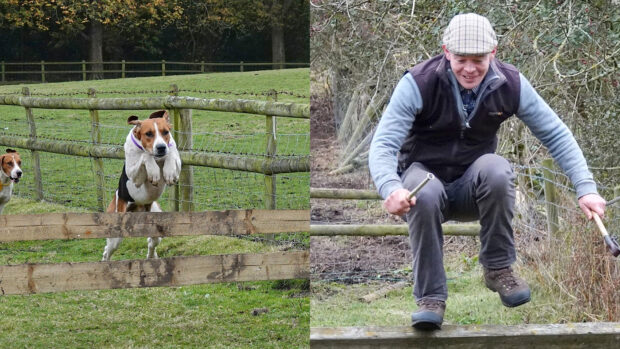It goes without saying that the end of the season leaves a gaping hole in the lives of huntsmen and followers alike. A few “go urban” while others turn to showing, jumping, dressage or driving to get their fix. But how do hunt grooms cope with the lifestyle disruption that the arrival of spring brings?
Although stable staff are never motivated by financial considerations, the hunting season is short, and grooms have bills to pay all year round. But even if you can turn your hand to different and perhaps less attractive work, how can you possibly replace the excitement of the hunt?
The answer for many, it seems, lies in refusing to relinquish their ongoing preoccupation with horses and hounds.
Sarah Duncan, 39, has been a hunt groom for nearly 12 years. She and huntsman husband Roderick are with the Grove and Rufford in Nottinghamshire.
“When the season ends, our work here just keeps on. We’ll be doing a bit of renovation – painting and decorating, fixing things up. There are usually three or four horses in the stables and the hounds need walking and worming.
“We also have the puppies to look after. We’ve got just the two litters at the moment –they need feeding three times a day. We still manage to go on holiday — last time we went to Lanzarote.”
Thirty-year-old Debbie Adams seems to have struck the perfect balance between work, family and hunting. For the past three years she has served as hunt groom for the Cumberland Farmers.
On learning that she also has two small children, you might assume that she would have little time or energy left for anything demanding in the way of summertime fun. But you would be wrong. As the season ends, Debbie is already anticipating a busy summer of yet more hunting. She will be crossing Cumbria up to three nights a week with a small but eager pack of trail hounds.
“They’re basically like a leaner version of a standard Foxhound, with their own peculiar diet. We feed them on things like pasta and vegetables,” she explains. “They can easily do 10 miles in 25 to 35min. They hunt an aniseed trail and we go all over with them.”
Debbie moved from Shropshire to Cumbria soon after the foot-and-mouth epidemic of 2001, when her partner, Adrian O’Brien, successfully applied to be kennel huntsman with the Cumberland Farmers.
“It was a bit of a change for me, but Adrian has lived in every place you can think of. At first I was just helping him out, but I soon got involved as a hunt groom.”
Like many hunt employees, the couple has to supplement its income. Debbie has taken on a part-time post, which guarantees her two-and-a-half days’ work a week all year round as an auditor with Carlisle City Council.
Revealingly, the common factor underpinning the lifestyles of these couples is the large degree of domestic continuity they do retain, irrespective of the time of year. In a sense, for Sarah, Roderick, Debbie and Adrian, the season never really ends. They simply continue doing what they do best, in the company of the animals they love.



